- Home
- Hugh Howey
Resist Page 23
Resist Read online
Page 23
Toni held his hand out to Penny, gripping it firmly. “Art never dies,” he said solemnly. It was his goodbye, and Penny couldn’t help the tears pricking her eyes. She nodded once, then ducked out of the office.
Art never dies. That had been their phrase, but in the past, it had meant something different for each of them. Penny had thought of art’s immortality as something implicit—art never died, because it could never die. And, therefore, it didn’t need to be fought for.
She had been wrong.
Toni’s interpretation was closer to the truth
Artists die. Sybl was proof of that. Penny—the whole Citizenry—had watched Sybl die. There was no going back from death.
But her art…
The Prime Chancellor and Director Reichs and everyone else had tried to kill it. They’d burned the Mona Lisa just because Sybl had used her smile to show how dangerous acceptance of the brutal laws of the citizenry could be. They’d painted over or torn down the walls Sybl had defaced. They’d tried to erase her from history.
But they couldn’t erase her from the minds of those who loved her. Loved art. Loved freedom.
Penny walked across town, descended into a subway, and boarded the first train that arrived. She rode to the end of the line and got off at the final station. The outskirts of the capital city were less heavily populated, but it was still easy to walk to a hotel and book a room for the night using the fake papers Toni had given her.
Penny was exhausted—not just from running around town, but from the adrenaline. She almost fell asleep on the bed, but she started awake when the mandatory program came on. The entire wall facing the hotel’s bed illuminated. Penny was glad she’d splurged on a room with a good quality wall unit. She sat up, leaned closer. If she squinted, it was almost like she was there.
“Welcome to a very special program!” Alexoi Dempsley’s voice vibrated with energy that seemed to palpably emanate from the display. While he always made sure to make every mandatory program seem important, tonight Penny suspected that the enthusiasm was real.
“I’m here today with Director Reichs and—” Alexoi took a deep breath, “—the Prime Chancellor himself!”
The Prime Chancellor walked into view, smiling slightly at the way the people in the background gasped at his arrival. Public outings for the Prime Chancellor were rare, and while he always gave speeches during the mandatory program, he did so in a separate location, pre-rerecorded. This was live.
Penny smiled.
“It is my pleasure to be here for the opening of our new national art museum!” the Prime Chancellor announced. He swept his arm back, and the camera followed, zooming into the room where they stood.
The wall unit’s display shifted. Penny stood up from the bed as light shot out of either side of the wall unit, creating the illusion of an open room. The holographic display made it feel as if Penny was actually inside the art museum with the Prime Chancellor; only the warm bed behind her reminded her she wasn’t.
Alexoi drew attention to himself. He excitedly told viewers about the inception of the art museum, its intent and future plans. “We have only three works of art on display today, but of course that number will grow!”
Director Reichs took over, leading Alexoi and the Prime Chancellor to the first work—a small sculpture of the Capitol Building. Director Reichs talked about the architecture that was on display, describing colonnades and their historical context with breathless joy. Penny wondered who the artist was—or if there had been an artist at all. The sculpture was an exact replica of the building; it could have been a 3D model printed from stone.
“And I love the landscape!” Alexoi chattered, leading the men—and the viewers at home—to the second work of art on display. Penny was impressed with the realism of it, until she realized the large framed landscape was actually a photo. While Penny had seen photographs that were true art, this was simply a high-resolution snapshot of the sea on the eastern coast. There was no artistry here, simply size. Calling this photo a “landscape” was, technically true—but it lacked depth. It lacked meaning.
Alexoi looked as if he would carry on the role of narrator when the view panned over to Penny’s portrait, but the Prime Chancellor cleared his throat and everyone stilled, waiting for him to speak.
“My favorite, of course,” he said in a deep voice that demanded respect, “is the portrait. Although I am perhaps biased.” No one chuckled at the joke until the Prime Chancellor allowed a rare smile to cross his face.
Penny’s heart raced. The three men positioned themselves in front of the canvas—her canvas—in such a way that the image was still clear to the mandatory program viewers. She stood, walking closer to the wall unit, until she was nose-to-nose with her own work of art.
“This,” the Prime Chancellor said, “is art.” His holographic projection was so close to her that she felt as if they were standing beside each other, friends viewing the same painting. “Real art,” the Prime Chancellor emphasized.
Penny touched her wrist.
Programming her nanobot tattoo had been far more complicated than she’d ever thought, especially knowing that every eye was on her, even in her private room. She had become adept, over the weeks of painting, at touching her wrist as if she had an itch, using the sub-derma controls to carefully program exactly what she needed the nanobots to do.
The tricky part, however, had been transferring the nanobots to the painting.
The scanner droids filming the mandatory program zoomed in on Penny’s portrait of the Prime Chancellor. They started at the feet, rising slowly, then settled on his face.
“The artist captured our beloved Prime Chancellor perfectly,” Alexoi’s voice said as the portrait filled the screen.
“I agree,” the Prime Chancellor said emphatically.
And then, slowly, the painting started to shift. It was subtle enough that no one caught it at first. As Director Reichs started to talk about the methods the artist used, Penny tuned him out.
Her nanobot tat had been embedded in her body, microscopic robots designed to display art on her skin, shifting in any way she pleased. Removing such a tattoo was fairly easy—the bots followed directions. So she programmed them to leave her body through her blood. Into the varnish.
“What is—” Alexoi started to ask, but the Director’s voice drowned him out.
Penny’s grin widened as she tapped on her wrist again.
Slowly, the painted smile on the Prime Chancellor’s face shifted. The skin around his mouth lightened; the lips thinned; the teeth disappeared behind a calm, serene, Mona Lisa smile.
Penny expected the camera to cut away, but it lingered on the image, perhaps entranced the same way people once were when they saw da Vinci’s work. Seconds ticked by. Penny didn’t breathe. Did the operator just not notice the change? That was surely impossible. But the longer Penny stared at her own work, the more her spine straightened. Her chin tilted up. A sense of pride—and hope—replaced every fear she had held before.
Through the speakers, people were shouting, cursing, ordering the camera to move. A thud shifted the image—Alexoi Dempsley lay sprawled on the floor after unsuccessfully trying to tackle the camera operator. Director Reichs rushed forward in an attempt to rip the canvas from the wall, but the security tasers around the painting threw him back.
And the image of the Prime Chancellor smiled complacently on.
The camera operator panned over to the real Prime Chancellor. His face was purple with rage, his eyes bulging—the antithesis of his peaceful smile on the portrait.
Eventually, finally, for the first time in living memory, the mandatory program was cut short.
Penny left the hotel. It wouldn’t be long before they would come looking for her. The girls she’d hired from the slop house would serve as a distraction, and Toni’s nanobot facial scramblers would hopefully slow them. Painting the Mona Lisa smile on the Prime Chancellor’s face had also painted a target on her back, Penny knew that. She�
�d known it from the start.
She wondered if it would ever be worth it, putting her life in jeopardy for a single painting, a single act of rebellion. But then at the mag-lift terminal she passed a kid with synth paint, scrawling the words “SYBL LIVES!” on the side of a wall.
And Penny smiled.
THE WATERS
KEVIN HEARNE
SOMETHING ABOUT RUNNING water relaxes me. When I walk alongside a clear mountain stream in the San Juan Mountains of southwestern Colorado, I can forget for a while that the world has a pillow over its face made of gases and that it’s smothering to death. It’s because the waters never speak of the problems that cause my lips to press into a thin line of worry and my stomach to churn with acid. Instead they ripple and flow over rocks, chuckling as they go, for they’re headed downhill and it’s easy, and everything they see is brimful of beauty and health, fulsome and fine. I need to forget my problems like that sometimes, lest I turn into an Edvard Munch painting, eternally screaming my horror in front of a burning sky. And while I forget, I also remember that long ago, the whole world used to be like the waters, pure and clean and sure of its purpose.
We are far gone from that time now. We can never go home again, as Thomas Wolfe observed. But we can still find thin slices of the primeval tucked away from roads and air traffic corridors and cell phone towers, and taste for a soft sweet while the peace we seek and never find in cities. And if you’re a Druid, you can walk among the animals of the world, bind their minds to yours, and feel what it’s like to live in blissful ignorance of politics, to drink up the sun or huddle underneath the moon and think of nothing but where to eat next. You can also, if you wish, bind your mind more deeply to a creature and teach them language over time. I have done that with my Irish wolfhound, Orlaith, and she loves roaming through forests with me, sharing what she smells, and asking me to name what it might be, since she’s still learning.
“You might be thinking of voles or shrews.”
I grin at her moral compass. “What’s worse, Orlaith? Squirrels or cats?”
We do have a grand time when I bind myself to the form of a black jaguar and we run through the forest together.
“But you can’t ever get along with a squirrel?”
A squirrel chatters at Orlaith and scurries up a tree as my hound takes off after it, barking like she has serious bad blood with this strange rodent. Even though my hound can stretch to more than six feet tall when she reaches up with her front paws, as she does here, the squirrel quickly outpaces her vertically and reaches safety in a branch above my hound’s head. It perches there, looking down, tail twitching, and scolds Orlaith furiously. I let them go at it until Orlaith feels satisfied.
“Okay, now that you’ve told that squirrel off and they know they’re wrong, do you think they’ll change their attitude?”
“Do squirrels ever change their minds?”
“Okay, I can understand that. There are people like that too. Squirrelly, you know, about other people. Internet trolls.”
“That’s true. I did make one hide though. You’d be proud. Maybe.”
“What did you do?”
“This one troll became so famous for being rude on Twitter to women and people of color that he made it into the news. An article I read included some of his tweets, and they were vile, even threatening. Since nothing was being done, I found out which city he lived in and traveled there to talk with the birds.”
“All of them. I very patiently showed them his picture and said that they should poop on him whenever they saw him. He doesn’t go outside much anymore. He can give people shit, but he can’t take it, I guess.”
THE STREAM WE’RE following is spring runoff high above Silverton, and it’s so winsome that we follow it downhill to enjoy it a while longer. It feeds into the Animas River, and soon enough the language of the waters graduates from chuckling and gurgling to a sibilant roar. But the swirls and skirls of it also become sullied by the legacy of mine tailings in the area and a horrible blunder in 2015 that spilled heavy metals into the river from the old Gold King mine. Arsenic, cadmium, and lead, plus copper and aluminum, turned the river orange. It’s somewhat better now, but the damage persists, the fish and wildlife poisoned, tourism way down. The miners who exploited the earth long ago for their short-term gain are now dust that could float dispersed among the incalculable damage they did, and that thought crumples the peaceful smile I’d been wearing quicker than failed origami. Because I am hyperaware that we who live today are doing irreparable harm to the world, wiping out species and ruining entire ecologies.
It makes me unbearably sad, and I sit down on the bank, staring at the polluted gunk floating by—much of it unseen, but I can feel it through my connection with the San Juan elemental—and weep for a timeline full of bad decisions.
Orlaith first sits beside me, then lies down and rests her head on my lap for easy petting. It comforts both of us.
“I’m sorry. I just lost it.”
“Maybe a little of all three.”
“It certainly would be for anyone who came along and wanted to start something with me right now.”
I flailed an arm at the river. “Witnessing this disaster and knowing it’s only one of too many to count. Feeling Gaia in distress. The bugs are dying off, have you noticed? The Great Barrier Reef is toast. There’s a huge floating island of plastic garbage in the ocean. Just so much to clean up and everyone thinking that the job is somebody else’s problem, never regretting their choices or changing their behavior. Like my stepfather and his oil company.”
“Yes. But it’s overwhelming when I think of it. There’s so much to do I wonder how I can do anything meaningful in the end.”
“What?”
That makes me laugh through the tears, and I kiss the top of her head for the gift. But it does shift my thinking.
“You’re right, of course. ‘Whatever I do will become forever what I have done,’ so I can’t become the Druid who could have done something but chose not to.”
“Yes. That’s from a poem by the Polish poet Wisława Szymborska. A simple moral reminder to live an examined life. Can you imagine this river, Orlaith, shining and sparkling again, full of healthy fish?
It could happen.”
I give Orlaith a final pet and rise to my feet, newly determined. I can’t solve what’s happening in the halls of government buildings or in the avaricious hearts of soulless men. Those are not powers that Gaia has granted me. But I can do something about making the Animas River run clear and pure again. I can bind the pollutants together and isolate them, prevent more from entering the river, and in so doing revitalize more than a hundred miles of land that will be home and succor for countless animals.
I can do at least this one thing. It may not matter to most of the world but it will matter here, so I will do it. Cleaning up this river, and whatever else I can manage in the time I have, will be forever what I’ve done.
FIVE LESSONS IN THE FATTENING ROOM
KHAALIDAH MUHAMMAD-ALI
1.
Some say that Mistress Ata Madidi is not of man, but birthed from the brackish waters of the Ebedi Ocean. They say she is divine, called into being by the need of one desperate woman to tame man and claim a free life. Like the ocean, the beloved Mistress is a fertile environ, brutal and rakish. She strips her charges of their coverings, their pasts, and their names. She becomes their new mothers. She shapes their bodies to contain their futures.
At the gates of her compound, beneath the cold gaze of twilight stars, the Mistress circled around to inspect me like a sheep for slaughter. She lifted my skirts and fingered my colt thin thighs. She tugged aside the neck of my tunic and ran her fingers across my collar bone and breasts. She gazed long into my eyes and read me like a soothsayer reads the stars.
The Mistress spat her disgust in a yellow wad at my feet.
“When I am finished, you will be a woman.” She signaled for me to follow, then turned and walked away.
“I have been a woman for four years,” I said, feeling the need to defend myself from the rough woman’s rude assessment.

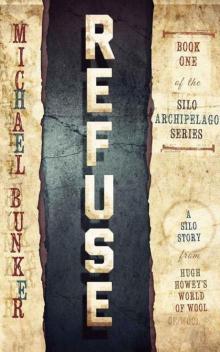 Refuse (The Silo Archipelago Series Book 1)
Refuse (The Silo Archipelago Series Book 1)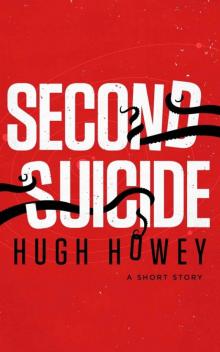 Second Suicide: A Short Story
Second Suicide: A Short Story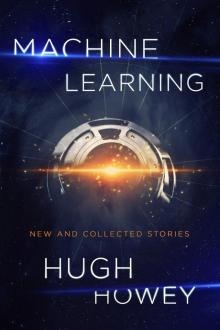 Machine Learning: New and Collected Stories
Machine Learning: New and Collected Stories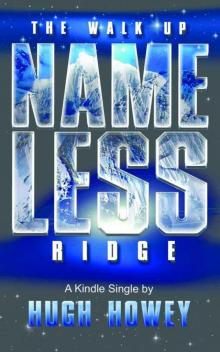 The Walk Up Nameless Ridge
The Walk Up Nameless Ridge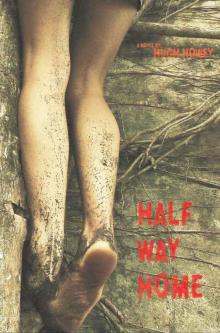 Half Way Home
Half Way Home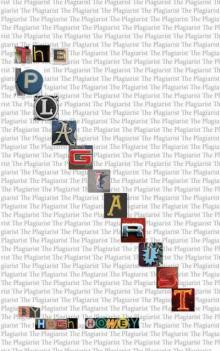 The Plagiarist
The Plagiarist Peace in Amber
Peace in Amber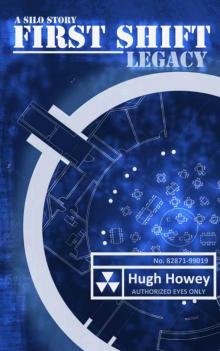 First Shift: Legacy
First Shift: Legacy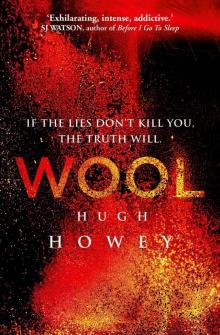 Wool
Wool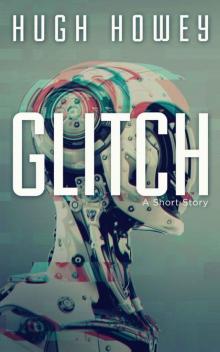 Glitch
Glitch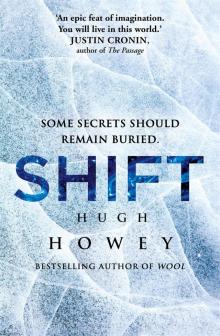 Shift
Shift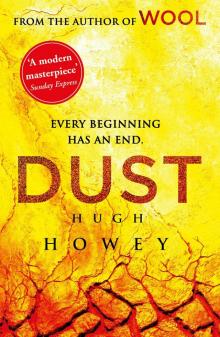 Dust
Dust Molly Fyde and the Land of Light
Molly Fyde and the Land of Light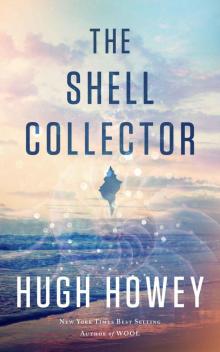 The Shell Collector
The Shell Collector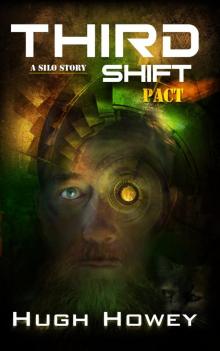 Third Shift: Pact
Third Shift: Pact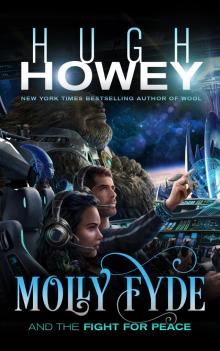 Molly Fyde and the Fight for Peace
Molly Fyde and the Fight for Peace Sand Omnibus
Sand Omnibus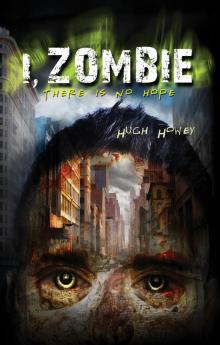 I, Zombie
I, Zombie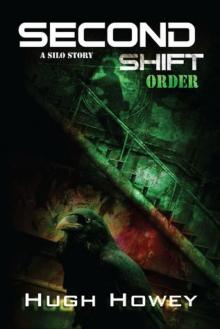 Second Shift: Order
Second Shift: Order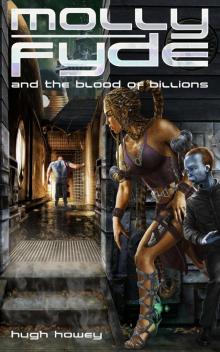 Molly Fyde and the Blood of Billions
Molly Fyde and the Blood of Billions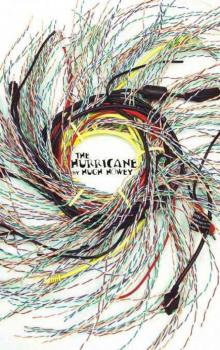 The Hurricane
The Hurricane The Box
The Box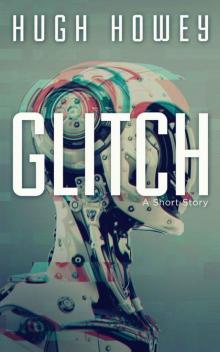 Glitch_A Short Story
Glitch_A Short Story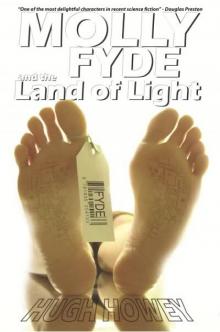 Molly Fyde and the Land of Light tbs-2
Molly Fyde and the Land of Light tbs-2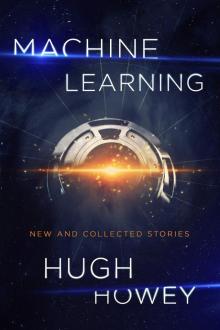 Machine Learning
Machine Learning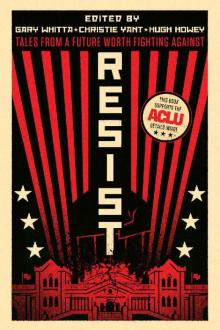 Resist
Resist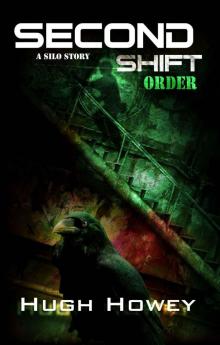 Second Shift - Order (Part 7 of the Silo Series) (Wool)
Second Shift - Order (Part 7 of the Silo Series) (Wool)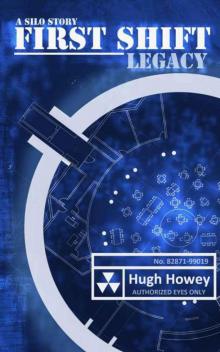 First Shift - Legacy s-1
First Shift - Legacy s-1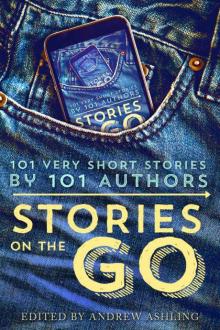 Stories on the Go: 101 Very Short Stories by 101 Authors
Stories on the Go: 101 Very Short Stories by 101 Authors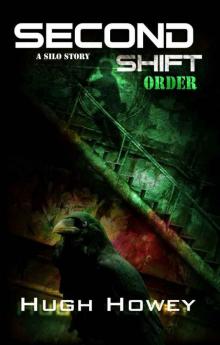 Second Shift - Order s-2
Second Shift - Order s-2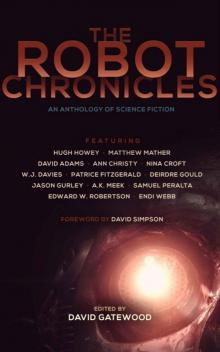 The Robot Chronicles
The Robot Chronicles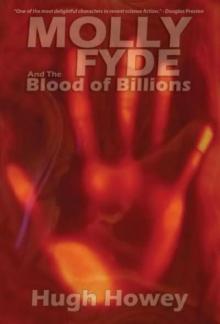 Molly Fyde and the Blood of Billions tbs-3
Molly Fyde and the Blood of Billions tbs-3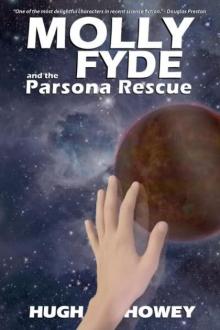 Molly Fyde and the Parsona Rescue tbs-1
Molly Fyde and the Parsona Rescue tbs-1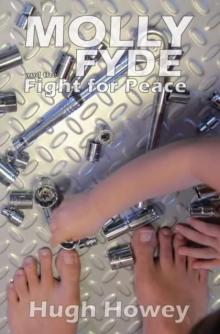 Molly Fyde and the Fight for Peace tbs-4
Molly Fyde and the Fight for Peace tbs-4 Sand
Sand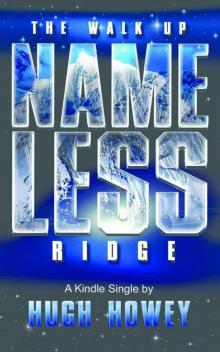 The Walk Up Nameless Ridge (Kindle Single)
The Walk Up Nameless Ridge (Kindle Single)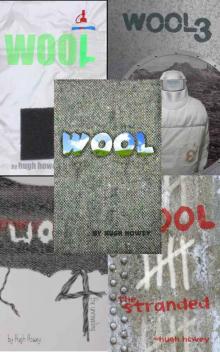 Wool Omnibus Edition (Wool 1 - 5)
Wool Omnibus Edition (Wool 1 - 5) The World of Kurt Vonnegut: Peace in Amber
The World of Kurt Vonnegut: Peace in Amber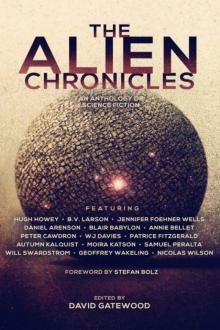 The Alien Chronicles
The Alien Chronicles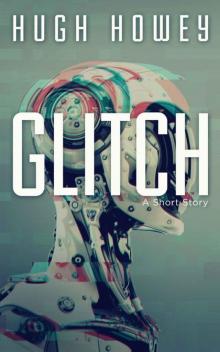 Glitch: A Short Story (Kindle Single)
Glitch: A Short Story (Kindle Single)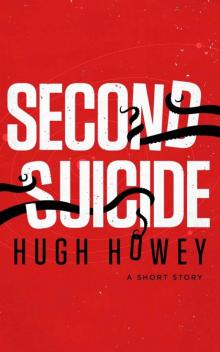 Second Suicide: A Short Story (Kindle Single)
Second Suicide: A Short Story (Kindle Single)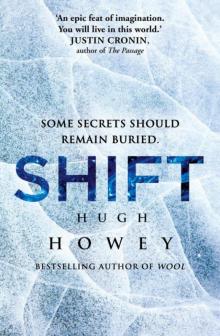 Shift (silo)
Shift (silo)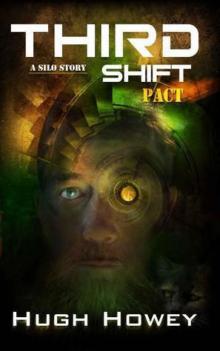 Third Shift - Pact
Third Shift - Pact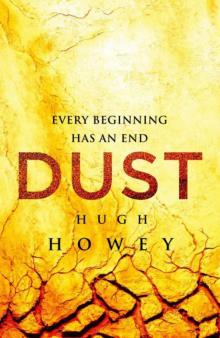 Dust s-9
Dust s-9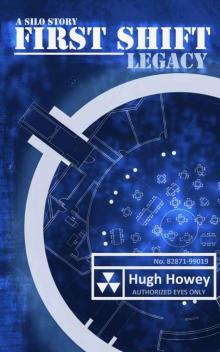 First Shift - Legacy (Part 6 of the Silo Series) (Wool)
First Shift - Legacy (Part 6 of the Silo Series) (Wool)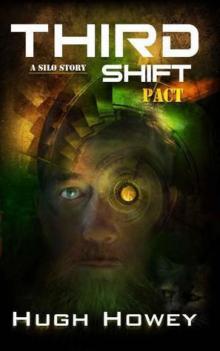 Third Shift - Pact s-3
Third Shift - Pact s-3 Sand: Omnibus Edition
Sand: Omnibus Edition The Box: A Short Story
The Box: A Short Story